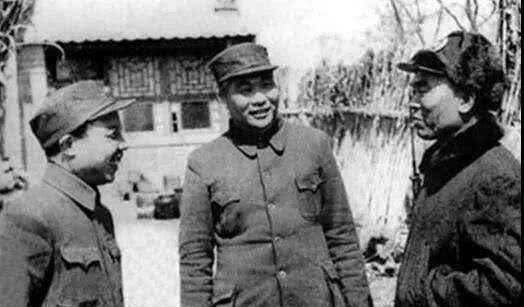In the Liaoshen Campaign, the highest Kuomintang officer guarding Changchun was the famous general Zheng Dongguo. There are two armies below. The two commanders are more interesting, and the subsequent endings are simply very different, one became a founding lieutenant general who has been passed down through the ages, and the other was imprisoned for 25 years.
What's going on?
Let's talk about the Sixtieth Army first, the commander's name is Zeng Zesheng. Obviously, for the Kuomintang and Zheng Dongguo, this is a miscellaneous army. Zeng Zesheng was a general of the Dian Army, who was forced by Lao Jiang to resist Japan, and after fighting Little Japan, he was sent by Lao Jiang to the northeast battlefield to participate in the civil war.
Although it also guarded Changchun, the Sixtieth Army was raised by the harem, and when the battle was fought, the Sixtieth Army rushed to the front, but the food and equipment were distributed, and the Sixtieth Army stood in the rear. No why, the Sixtieth Army was a miscellaneous army, and Zheng Dongguo was not at ease with it.

To the point of exhaustion, Zheng Dongguo decided to break through and seek Zeng Zesheng's advice. Zeng Zesheng said very negatively that there was no hope for a breakthrough, the troops did not even have food, and they could not fight at all. Privately, Zeng Zesheng actively brewed a peaceful uprising.
After everything was prepared, Zeng Ze sent a handwritten letter to Zheng Dongguo, advising him to also revolt. Zheng Dongguo said, however, that he told Commander Zeng that he wanted to revolt, and he looked at it himself, and we were not all the way and could not do it together.
In October 1948, Zeng Zesheng successfully revolted. After the uprising, he still served as a military commander, from the Sixty Army to the Fifty Army, Zeng Zesheng participated in the War to Resist US Aggression and Aid Korea, fought very bravely, and moved Mr. Peng to pay tribute to him. He was eventually awarded the title of founding lieutenant general, which has been passed down through the ages.
So, what about an army? This is the New Seventh Army of the Kuomintang lineage, commander Li Hong, a native of Xiangyin, Hunan. Li Hong, like Zeng Zesheng and Zheng Dongguo, was a student of the Huangpu Department, and he was a junior disciple of the Huangpu Fifth Stage.
(Lieutenant General Zeng Zesheng)
Li Hong was a subordinate of Sun Liren, and his life's honor and disgrace were closely related to Sun Liren. Sun Liren was very successful in battle, and his promotion was very fast, Li Hong also rose to the top, and he also followed Sun Liren to participate in the Chinese Expeditionary Force. Although he was a Kuomintang concubine, Li Hong was not enthusiastic about the civil war.
But there was no way, the gunshots rang out, and he was sent to the northeast battlefield. After Changchun was besieged, the New Seventh Army was given priority and treated much better than the Sixtieth Army, but Li Hong did not want to resist to the end like Zheng Dongguo.
During this period, Li Hong and Zeng Zesheng chatted. They were discussing the breakthrough, and Zeng Zesheng tentatively asked, "Our Sixty Army cannot break through, how are you?" Li Hong said very sadly that the people's hearts were scattered, the division commander had the idea of the division commander, the soldiers had the thoughts of the soldiers, and the troops had already left Germany. Trapped in Changchun, everyone can still be together, once out, immediately dispersed.
Li Hong was right, in order to live well, his subordinates all went ahead of him, actively contacted our army, and finally decided to lay down their weapons. This is not called an uprising, it can only be called surrender, but it is also stronger than stubborn resistance. At least after the liberation of Changchun, Li Hong, a Kuomintang commander, was not treated as a war criminal.
Li Hong went back to his hometown. He is free.
(Li Hong)
If you live honestly like this, Li Hong said that you can't live well in your hometown and be very happy. However, the old chief Sun Liren gained power in Taiwan and became the commander-in-chief of Taiwan's defense. Sun Liren did not forget his old subordinate Li Hong, and invited him to go to Taiwan to share his wealth.
However, the wealth and glory of the world is just a dream of Huang Liang. Li Hong went to Taiwan via Hong Kong. Soon after arriving, Li Hong was arrested. Why? Quite simply, the Taiwanese side says he is a spy, and if you are, you are, you are not.
As we all know, later Sun Liren was unlucky, Li Hong was implicated, arrested and imprisoned, and charged with abandoning Changchun that year - this is called settling accounts after autumn, and dare to come back! It was 25 years until Chiang Kai-shek died that Li Hong was free. At this time, Li Hong was already white-haired.
In 1988, Li Hong died in Taiwan. In the second half of his life, it was really a wrong step, and all hell broke loose.